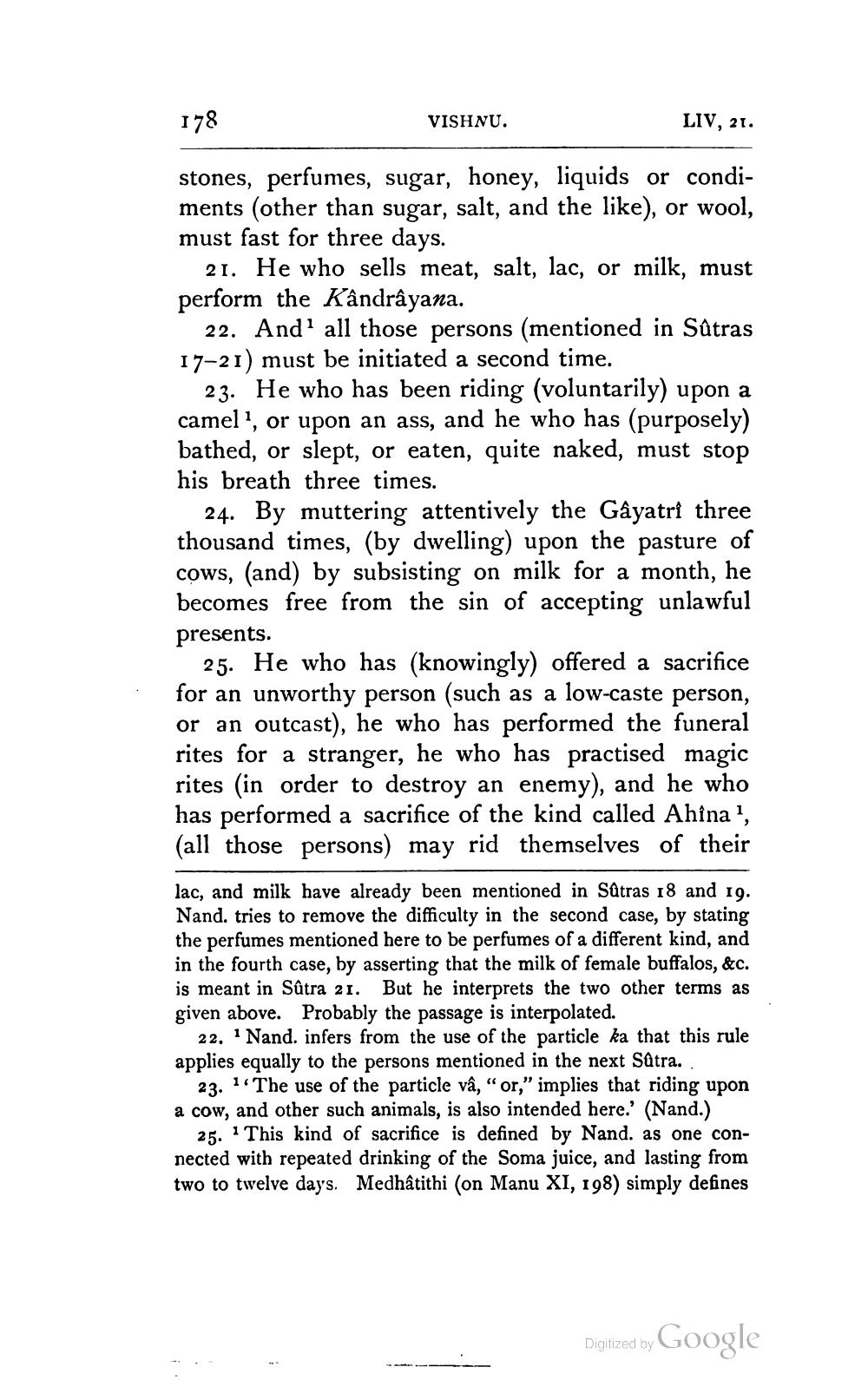________________
178
VISHNU.
LIV, 21.
stones, perfumes, sugar, honey, liquids or condiments (other than sugar, salt, and the like), or wool, must fast for three days.
21. He who sells meat, salt, lac, or milk, must perform the Kândrayana.
22. And all those persons (mentioned in Sûtras 17-21) must be initiated a second time.
23. He who has been riding (voluntarily) upon a camel?, or upon an ass, and he who has (purposely) bathed, or slept, or eaten, quite naked, must stop his breath three times.
24. By muttering attentively the Gayatri three thousand times, (by dwelling) upon the pasture of cows, (and) by subsisting on milk for a month, he becomes free from the sin of accepting unlawful presents.
25. He who has (knowingly) offered a sacrifice for an unworthy person (such as a low-caste person, or an outcast), he who has performed the funeral rites for a stranger, he who has practised magic rites (in order to destroy an enemy), and he who has performed a sacrifice of the kind called Ahina, (all those persons) may rid themselves of their
lac, and milk have already been mentioned in Sätras 18 and 19. Nand. tries to remove the difficulty in the second case, by stating the perfumes mentioned here to be perfumes of a different kind, and in the fourth case, by asserting that the milk of female buffalos, &c. is meant in Sûtra 21. But he interprets the two other terms as given above. Probably the passage is interpolated.
22. 1 Nand. infers from the use of the particle ka that this rule applies equally to the persons mentioned in the next Sætra..
23. 1«The use of the particle vâ, “or," implies that riding upon a cow, and other such animals, is also intended here.' (Nand.)
25. 1 This kind of sacrifice is defined by Nand. as one connected with repeated drinking of the Soma juice, and lasting from two to twelve days. Medhâtithi (on Manu XI, 198) simply defines
Digitized by Google




